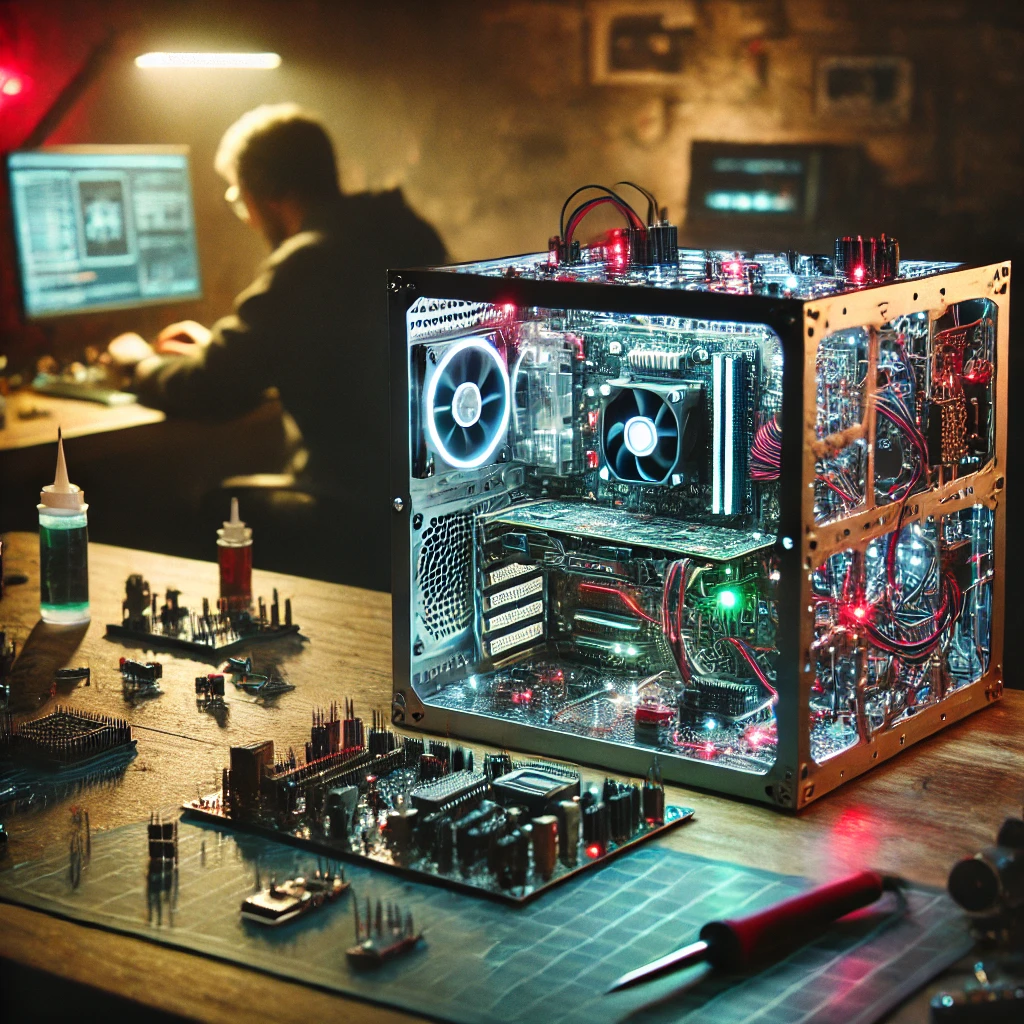In the early days of computing, pioneers like Steve Wozniak and other electronics enthusiasts built computers from discrete components. But today, with advanced technology and commercial components readily available, is it still possible to build a homemade PC? The answer is yes, but it depends on the approach you take.
Options for Building a PC from Scratch
1. Microcontroller-Based (Easy and Accessible)
If the goal is to create a rudimentary computer capable of performing basic operations, microcontrollers like Arduino, ESP32, or Raspberry Pi Pico offer a great starting point.
They can run languages like MicroPython or BASIC.
Support input/output for interacting with peripherals.
Easy to program and manage.
A practical example is a mini-system capable of running BASIC scripts on a Raspberry Pi Pico.
2. FPGA-Based (Intermediate, but Flexible)
FPGA (Field-Programmable Gate Array) allows you to create a custom CPU.
Open-source projects like RISC-V enable the development of a functioning computer architecture.
Old CPUs like the 6502 or Z80 can be simulated.
Requires knowledge of hardware programming (VHDL, Verilog).
An example is building a Commodore 64 clone using an FPGA.
3. Logic Circuit-Based (Difficult, but Educational)
For those who want to take on the challenge of pure electronics, building a computer with only logic gates, RAM, and a basic CPU is a fascinating option.
Requires a solid understanding of digital electronics.
Classic CPUs like the 6502 or Z80 can be replicated.
A well-known example is the Ben Eater 8-bit project, which demonstrates how to build a computer using only discrete components.
4. Recycled Components-Based (Practical and Sustainable)
A more accessible option is reusing old components to assemble a homemade PC.
Old motherboards and CPUs can still be used with lightweight operating systems (e.g., Linux).
Can be used to build home NAS systems or emulators with outdated hardware.
A great solution for reducing electronic waste.
Building a homemade PC is still possible, but the difficulty varies depending on the desired level of customization. A microcontroller-based approach is accessible to everyone, while FPGA or logic circuit projects require advanced knowledge. If your goal is a working computer with a good price-performance ratio, the best solution might still be reusing existing hardware.
Would you like to try building a DIY computer? Share your experience in the comments!








Leave a Comment